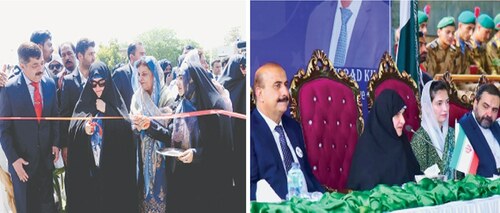ISLAMABAD: The national polio programme has decided to eradicate the virus by April this year and ensure that no case is reported during the next three years so that the travel restrictions on Pakistanis could be lifted.
Moreover, focus will be on the sanitation system, contaminated water, collection of garbage and cleanliness because they are the contributing factors in the polio cases.
However, refusal cases during the anti-polio campaigns will be the major challenge. Last year, in five out of the eight reported cases, families refused to administer polio drops to their children.
The Independent Monitoring Board (IMB), which works on behalf of the international donor agencies, in November 2012 recommended travel restrictions on Pakistanis. The recommendation was implemented on May 5, 2014, under which all Pakistanis and foreigners, who stay in the country for over four weeks, have to be vaccinated against polio before travelling abroad.
Efforts will be made to ensure that no case is reported for three years so travel restrictions can be lifted, says official
An official of the Ministry of National Health Services, requesting not to be quoted, said in all new PC-1s provincial governments had allocated resources so there was only the issue of political will, not resources.
“There is also the issue of good governance and a lack of merit due to which a large number of children are missed during polio campaigns across the country,” he said.
National Coordinator for Polio Dr Rana Safdar told Dawn that the polio campaigns would be held in January, February and April. In March, a sub-national drive in areas where poliovirus is still found will be held.
“We expect that the poliovirus will be completely interrupted by April this year. However, there will be a huge challenge to ensure that no case is reported for the next three years. In Nigeria, the virus was interrupted but after one and a half years it reappeared,” he said.
In reply to a question, Dr Safdar confirmed that last year five refusal cases had been reported.
“We are formulating a policy to tackle the refusal cases. The communities in which there are refusals are being marked and they will be convinced through different channels to administer polio drops to all children,” he said.
He said the low ratio of routine immunisation was also an issue as in Balochistan 50pc children were never given vaccines during routine immunisations. In Fata and in Sindh, 20pc children are also never administered vaccines.
“It has been decided that special campaigns will be held to ensure that there is a proper sewerage system across the country, the citizens get clean drinking water, garbage is collected and cleanliness is ensured because these are the contributing factors for the virus.”
Dr Safdar said it had also been decided that Afghanistan would be supported to eradicate the virus because it would be in the interest of Pakistan.
Published in Dawn, January 12th, 2018














































Dear visitor, the comments section is undergoing an overhaul and will return soon.